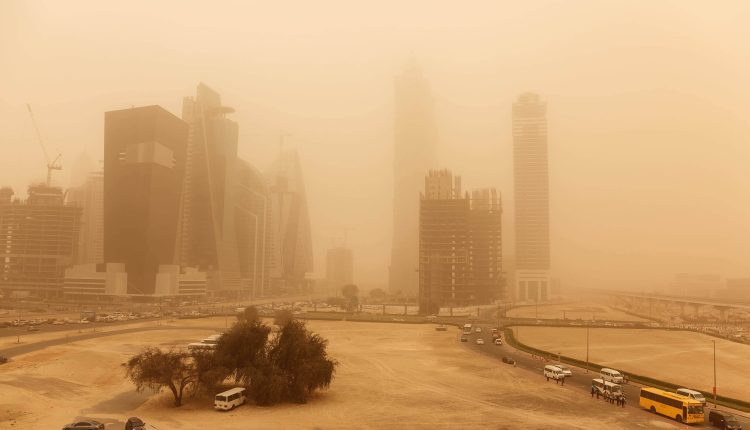The UAE’s huge production of fossil fuels is causing very high levels of air pollution, which harms the health of its citizens and migrant workers besides heating the planet, a report by Human Rights Watch said on Monday.
According to the report, the UAE’s average levels of PM2.5 (tiny harmful particles that can go deep into the lungs and blood) were almost triple the daily safe levels under the World Health Organisation’s air quality guidelines, based on data from 30 government monitoring stations in September 2023.
In the UAE, where 88 percent of the population is migrant and almost all outdoor workers are at highest risk, an estimated 1,872 people per year pass away from outdoor air pollution.
Since thousands of delegates came to Dubai for Cop28, the sky has been obscured by pollution most days, with daily readings of air quality up to five times higher than the WHO’s recommended levels.
The UAE, like many other nations, including the US, Norway, and the UK, is expanding its oil and gas operations, despite the scientific consensus that fossil fuels must be phased out to avoid the most catastrophic climate impacts.
The Guardian revealed last month that state-run oil and gas fields have been flaring gas almost every day, in spite of pledging 20 years ago to have zero routine flaring.
The UAE government claims that the country’s air quality is poor, but it primarily blames sandstorm dust for this.
Authorities in the UAE have silenced human rights activists, including environmentalists, for a decade.
According to the HRW report, people who want to expose or criticise fossil fuel expansion and air pollution risk being spied on, arrested, detained, and abused.
“Air pollution is a dirty secret in the UAE,” said Richard Pearshouse, HRW’s environment director.
He further added, “If the government doesn’t allow civil society to scrutinise and speak freely about the connection between air pollution and its fossil fuel industry, people will keep experiencing health conditions that are entirely preventable.”


